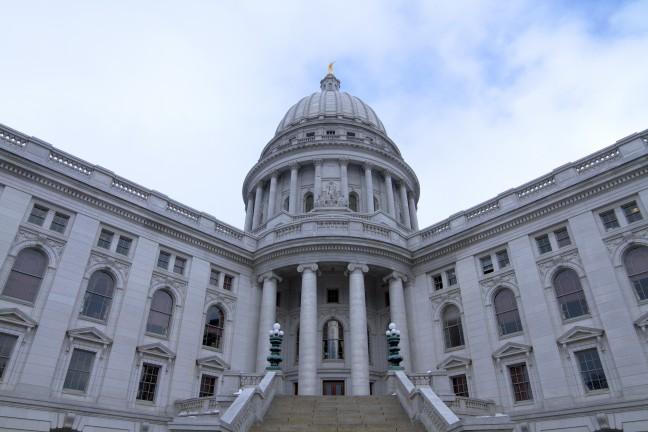Wisconsin’s Democratic legislators will have a difficult time passing their bills as experts predict Republicans will take an “emboldened” approach toward their agenda in the upcoming legislative session.
Wisconsin Republicans Nov. 8 secured their largest majority in the state Legislature since 1956. Mike Wagner, University of Wisconsin journalism professor, said this is predictive of an even more conservative agenda going through the session in 2017.
“Democrats are going to have a hard time getting much of their agenda on the legislative agenda, let alone getting it passed,” Wagner said.
Republicans’ stronger presence in the Legislature is expected to impact students. UW System Board of Regents approved a plan for $42.5 million in state aid for the 2017-19 budget in August, which is approximately half of the $95.2 million it requested for the 2015-17 budget.
UW political science professor Barry Burden said Republicans could push for further cuts to higher education institutions like those in the UW System, which Wagner said could raise other costs like tuition and are expected to be met with resistance from students. Burden anticipates Democrats will try to lessen budget cuts through their own proposals, however, the Legislature is unlikely to adopt them.
Burden said the university in the upcoming session is expected to push for its budget plan and for fewer restrictions on employees and research areas. UW System’s budget plan looks to expand college advising options for younger students, increase research opportunities, connect students with job opportunities and create a more transparent system.
Another issue state Republicans are expected to spearhead is legalizing concealed carry on college campuses, something the UW System opposes.
Wisconsin Legislators might have to propose changes to BadgerCare, a state program that provides health care coverage to Wisconsinites in need, if President-elect Donald Trump and Congress repeal the Affordable Care Act, Burden said. In this case, since Obamacare would no longer be in effect, all laws passed in accordance with it would have to be reversed through new bills. It is unclear what impact repealing the Affordable Care Act will have on Wisconsin.
Transportation funding is another issue that Republicans could find difficult, Burden said. Wisconsin’s roads and transport continue to decline without further investment in their upkeep, which is something that will probably be addressed in the upcoming session.
“The governor continues to be at odds with legislative leaders about how much to invest in transportation and how to pay for it,” Burden said.
Regarding K-12 education, Burden expects state Republicans to move forward this session with their school choice program.
Burden predicts bills increasing support for private schools and the School Choice Wisconsin program to be passed. The School Choice Wisconsin program expands educational options for students in low to middle-income families through vouchers and parent-focused programs.
Democrats are expected to continue pushing for election reforms, criminal justice reform and other issues, but it is unlikely their initiatives will get any serious attention.
“We should expect the [Republican] party to have continued success enacting most of its desired legislation,” Burden said.
Doha Awad contributed to reporting for this article.


